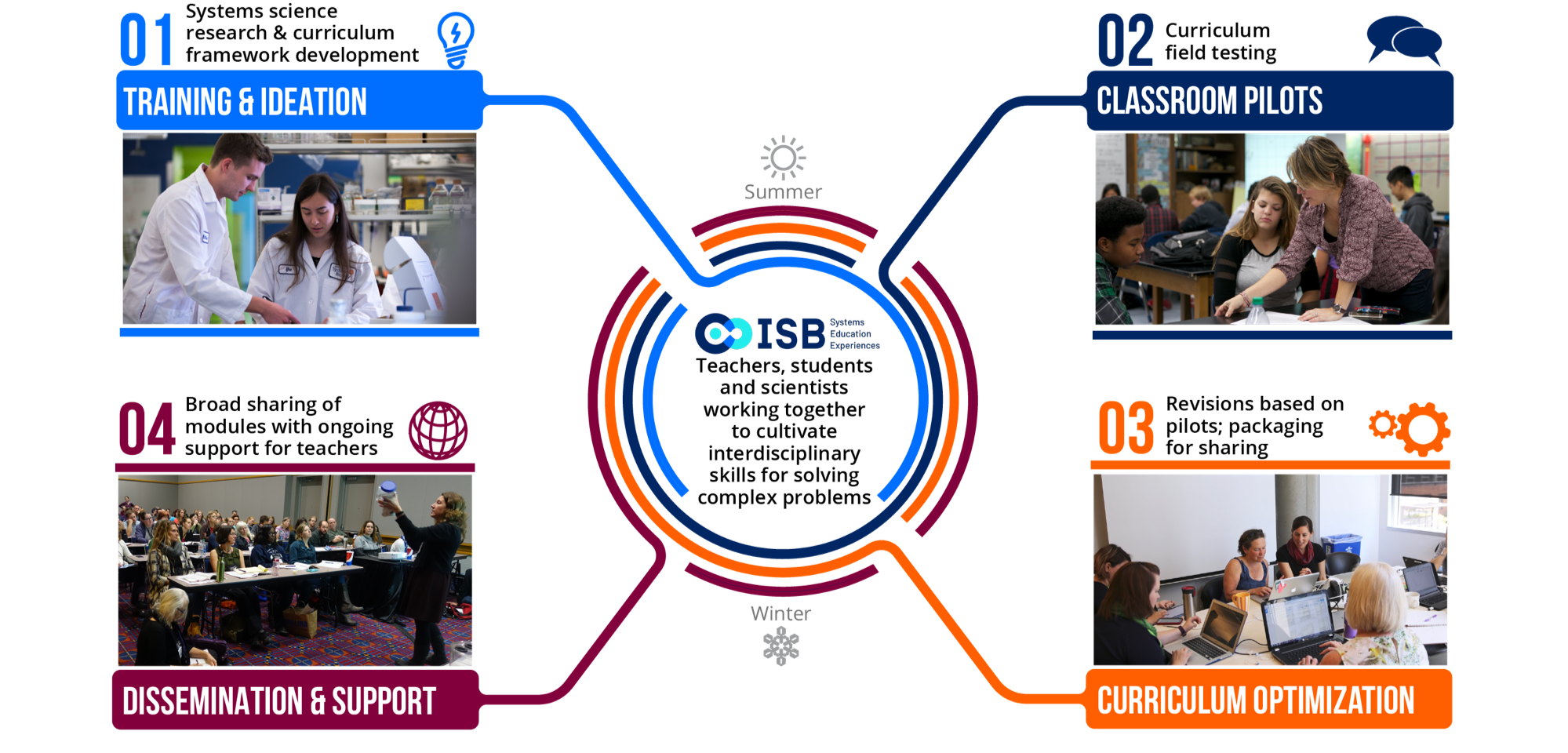Program Summary
The Systems Education Experiences (SEE) program provides an integrative approach to help all participants internalize systems biology methods and thinking.
Our Vision is for all students to be engaged in using systems-level, scientific thinking to better understand and participate in solving today’s complex problems.
Our Mission is, therefore, to cultivate cross-disciplinary skills for solving complex problems.
For more information, please watch this video and/or read below.

We do this through an iterative program that begins with a cross-disciplinary summer internship. Teachers and students (high school through graduate) work with STEM* scientists during the summer to learn how systems science is applied to better understand and solve today’s complex problems.
The team assesses what is currently available for schools and begins to build needed curriculum, frameworks, and technology based on what they learned in the lab. All curriculum is aimed at helping students develop the thinking and concepts required for using systems science to solve complex problems. This is possible in traditional non-integrated courses by presenting a problem or phenomenon that inherently brings together biology, chemistry, physics, engineering, mathematics, statistics, and computer science.
During the academic year, these curricular ideas and frameworks are field tested in classrooms (generally in 8-12th grades). If that work is pertinent, a new summer team comes together to further develop that curriculum module while connecting more completely to best education practices, standards, and the systems level work being completed in the lab. Field testing, modification, and optimization occur over three years. If hands-on cultures and lab materials are needed to enable easy classroom implementation, then a kit of materials is designed and made available.
All curricular materials, online tools, and teaching aides are placed on our website for broad dissemination. The curriculum generally focuses on the new systems process of science. Because this is often a paradigm shift for educators, the SEE team attends and hosts professional development institutes to train teachers to bring this curriculum and these hands-on STEM experiences to their students. New ideas come from teachers at those institutes and the cycle begins again!
Please view this video for more information on SEE which was developed as part of a National Science Foundation STEM Showcase.
*STEM = Science, technology, engineering, and math
This work is made possible by National Science Foundation and National Institutes of Health.
